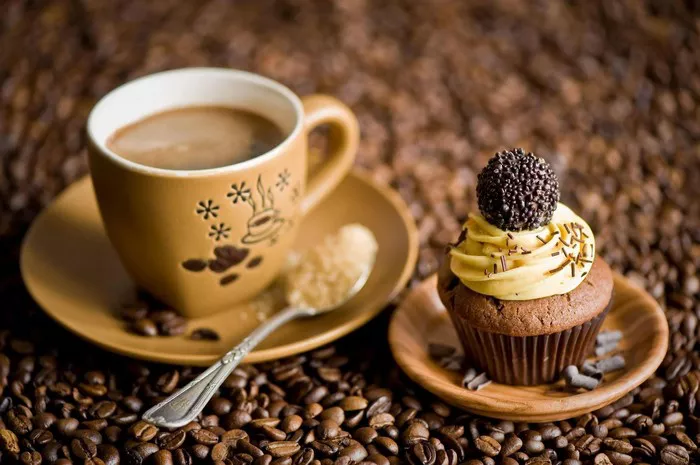In the world of beverages, caffeine reigns supreme as the quintessential stimulant. From bustling mornings to late-night study sessions, many rely on caffeine to kickstart their day or provide that extra boost of energy. While coffee is often the go-to source for caffeine, tea stands as a formidable contender in this realm. In this comprehensive analysis, we delve into the depths of caffeine content, comparing tea and coffee to understand their similarities, differences, and the factors that influence their caffeine levels.
Caffeine Basics
Before we embark on our journey of comparing caffeine content in tea and coffee, it’s essential to grasp the fundamentals of caffeine itself. Caffeine is a natural compound found in various plants, including coffee beans and tea leaves. Its stimulating effects are well-documented, with caffeine acting on the central nervous system to increase alertness and reduce fatigue.
The Chemistry of Caffeine
Caffeine’s chemical structure is uniform across both tea and coffee, comprising carbon, hydrogen, nitrogen, and oxygen atoms arranged in a specific configuration. This structural similarity underpins caffeine’s physiological effects, regardless of its source.
Caffeine in Coffee
Coffee, revered for its robust flavor and invigorating aroma, is a staple in many cultures worldwide. But how much caffeine does a typical cup of coffee contain? On average, an 8-ounce (240-milliliter) cup of brewed coffee packs approximately 95 milligrams of caffeine. However, this figure can vary significantly depending on factors such as coffee bean type, brewing method, and serving size.
The Spectrum of Tea: From Green to Black
Tea, celebrated for its diverse flavors and rich history, offers a nuanced caffeine experience. Unlike coffee, which predominantly derives from the Coffea plant, tea encompasses various varieties, each with its caffeine profile. From delicate green teas to robust black teas, the caffeine content varies, catering to different preferences and sensitivities.
Decoding Tea’s Caffeine Content
While tea is often perceived as a milder alternative to coffee, its caffeine content should not be underestimated. On average, an 8-ounce (240-milliliter) cup of brewed tea contains approximately 30 to 50 milligrams of caffeine. However, this figure fluctuates depending on factors such as tea type, brewing duration, and leaf grade.
Variability in Caffeine Levels
Understanding the factors influencing caffeine levels in both tea and coffee is crucial for accurately assessing their comparative caffeine content. In coffee, variables such as bean type, roast level, grind size, and brewing method can significantly impact caffeine extraction. Similarly, in tea, factors including leaf type, brewing temperature, steeping time, and water quality play pivotal roles in determining caffeine concentrations.
Caffeine Absorption and Metabolism
Beyond caffeine content, the body’s absorption and metabolism of caffeine dictate its physiological effects. Upon consumption, caffeine is rapidly absorbed into the bloodstream, reaching peak levels within 30 to 60 minutes. The liver metabolizes caffeine into various compounds, prolonging its effects and eventual elimination from the body.
Individual Variations in Response
While general guidelines exist for caffeine consumption, individual responses to caffeine vary widely. Factors such as age, weight, metabolism, genetics, and tolerance levels influence how individuals react to caffeine intake. Some may experience heightened alertness and enhanced cognitive function, while others may encounter side effects such as jitteriness, anxiety, or disrupted sleep patterns.
Health Implications of Caffeine
Moderate caffeine consumption is generally considered safe for most individuals and may even confer certain health benefits, such as improved mental focus and reduced risk of certain diseases. However, excessive caffeine intake can lead to adverse effects, including insomnia, digestive issues, and increased heart rate. It’s crucial to strike a balance and consume caffeine in moderation.
Making Informed Choices
Armed with knowledge about caffeine content in tea and coffee, consumers can make informed choices based on their preferences, caffeine sensitivity, and lifestyle. Whether savoring a robust cup of coffee to jumpstart the day or indulging in a soothing brew of tea for a moment of relaxation, understanding the caffeine landscape empowers individuals to tailor their beverage choices to suit their needs.
Conclusion
In the caffeine arena, tea and coffee stand as perennial favorites, each offering a distinct flavor profile and caffeine experience. While coffee boasts higher caffeine concentrations per serving, tea provides a gentler alternative with nuanced flavor nuances. By exploring the intricacies of caffeine content, absorption, and metabolism, consumers can navigate the world of beverages with confidence, savoring every sip with newfound appreciation and understanding.


